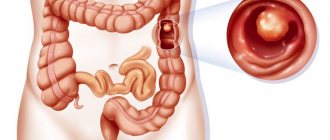Menopause is an inevitable period in the life of every representative of the fair sex. It signals the end of a woman's reproductive age. Hormonal changes occur in a woman’s body, which is accompanied by various manifestations.
According to medical statistics, approximately 50% of women develop neurosis during menopause. The lady experiences changes in her mental state, accompanied by autonomic nervous disorders. In this article we will look at what symptoms climacteric neurosis has and in what cases medical help is needed.
Why does neurosis appear during menopause?
Not so long ago, doctors believed that during menopause, women develop neurosis due to a decrease in the level of sex hormones - estrogen and progesterone. But studies were conducted on the case histories of menopausal patients diagnosed with neurosis, which refuted the existing opinion and put forward a new one.
First, let's take a look at the results of the study. Approximately 15% of women diagnosed with neurosis had regular periods and normal hormonal levels. In almost 40% of women, neurosis appeared only 5-15 years after menopause, when the body had a consistently low level of hormones.
In half of the patients, neurosis began to develop simultaneously with menopausal symptoms: menstrual irregularities, hot flashes, increased sweating, irritability and others. Scientists have concluded that neurotic manifestations, just like menopause, cause age-related changes in the hypothalamus. It is located in the brain and is responsible for endocrine functions in a woman’s body, as well as her behavior and emotions.
This is why so often women of mature age experience menopause and neurosis at the same time. But you should know that these states are not interrelated. After all, only half of all female representatives during menopause experience symptoms of neurosis. The other half of women during menopause do not experience mental disorders.
Causes
If you look closely at the statistics, you will notice that almost 60% of women suffer from severe menopausal neurosis.
Previously, from a medical point of view, doctors argued that the main cause was hidden due to changes in the function of the hypothalamus, in other words, a lack of hormones in the body. But, at present, scientists have concluded that this is not the only cause of menopausal neurosis; now doctors also take into account age-related changes in the hypothalamus.
So, the main reason is a change in hormonal levels, which in turn affects the psychological state. Let's consider additional provoking factors.
- Heredity.
- Experienced stressful situations, including negative moments of the present.
- Characteristics of a woman's personality.
- Neglecting the rules of healthy sleep and work schedule.
In addition, lack of nutritional components, disturbed sleep and chronic fatigue play an important role.
It is important to understand that nervousness, irritation and other signs of menopausal neurosis can occur either against the background of one of the reasons described above, or in combination.
https://youtu.be/XKJsTkUUf7Q
Features of neurosis
You should know that neurosis has the following types of mental disorders:
- Vegetative system. These include: rapid fatigue, memory deterioration, difficulty concentrating, sleep disturbances, including the development of insomnia. As a result, performance decreases sharply.
- Hysterical. The woman's resistance to stress is significantly reduced, and it is difficult for her to cope with even minor stress. The woman becomes capricious, whiny and prone to hysterics. This manifests itself in increased sensitivity and making claims against loved ones.
- Hypochondriacal. They manifest themselves in increased attention to one’s own person and the state of one’s health. A woman demands constant attention from those around her. She looks for symptoms of diseases and finds non-existent diseases or pathologies.
- Depressed. The lady's mood often changes. She develops an anxious mood and loses the desire to do anything.
When a woman develops neurosis during menopause, she may have either one type of the disorders discussed, or several, or the entire list.
Neurosis against the background of menopause
A condition such as menopausal neurosis does not occur in all women; it mainly affects 30 to 60% of women, and the likelihood of its occurrence is higher if a woman has previously had signs of other neuroses. Most often, manifestations of this type of neurosis occur in women aged 45 to 50 years.
Modern scientists believe that neurosis during menopause has nothing to do with changes in hormone concentrations; in fact, the cause of this condition is the increased reactivity of the hypothalamus, which controls the sympathetic department of the body’s nervous system. This is precisely what is associated with the physical manifestations of neurosis in the form of hot flashes or chills, tremors in the hands and disorders of the vestibular apparatus.
Symptoms of pathology
Term.
Let's consider what symptoms climacteric neurosis may have:
- sudden change in mood;
- the appearance of unreasonable irritability;
- negative perception of one's external data;
- suspiciousness;
- dizziness;
- noise in ears;
- decreased appetite;
- feeling of chronic fatigue;
- increased sweating;
- sleep disturbance: difficulty falling asleep in the evening, sudden awakening at night after which it is difficult to fall asleep again;
- insomnia;
- heart pain not caused by organic causes;
- constipation or flatulence;
- excessive concern for one’s appearance or, conversely, complete indifference to it;
- lack of desire to communicate, up to the development of social phobia.
Another manifestation of this condition is a decrease in self-esteem. A woman may have obsessive thoughts that she has lost her attractiveness to her husband and may be abandoned. She tries to become more helpful to everyone in the family and tries to do more work. As a result, the woman becomes more tired and the disease worsens.
Classic signs of menopause
For most women, symptoms of menopause include:
- fatigue;
- sweating;
- hot flashes with redness of the skin;
- difficulty falling asleep;
- sudden awakening and inability to fall asleep again;
- irritability, tearfulness;
- suspiciousness;
- pressure surges;
- tachycardia;
- heart pain without organic causes;
- rapid mood changes;
- noise in ears;
- constipation, flatulence;
- itching in the genitals;
- pain when urinating;
- “floaters” in the eyes;
- dizziness.
All of them are associated with changes in hormonal levels, surges in estrogen and progesterone, and the body’s adjustment to the new “hormonal reality.” In the future, when the menopause passes and menopause occurs, these symptoms will disappear. And their place will be taken by gradually developing changes in posture and skin elasticity, gray hair and wrinkles, and weight gain. Sometimes increased bone fragility and mastopathy develop; Also, menopause can become an impetus for the onset of diseases of the cardiovascular system.
The listed signs of aging develop in different women at different rates and volumes. Much depends on heredity, amount of movement, quality of food, the presence of bad habits and, most importantly, on the way of thinking. It is known that cheerful and kind people age more slowly, and even in old age remain active and full of energy.
How the disease develops
The development of menopausal neurosis during menopause goes through 3 stages:
- The first stage is characterized by periodic disturbances in the functioning of the vegetative-vascular system, as well as rapid changes in the psycho-emotional state. As a rule, women attribute the signs that appear to fatigue, the consequences of experienced stress, or the onset of menopause.
- At the second stage, intensive development of the disease occurs. The lady begins to worry about the symptoms of neurosis, which can manifest themselves with varying intensity and duration.
- The third stage – the disease has become chronic. Changes occur in the personality structure.
It is very important to start therapy as early as possible to prevent serious complications.
Development of climate neurosis
Menopausal neurosis and its symptoms go through three stages of development. Primary manifestations are barely noticeable - these are sudden mood swings, which a woman with vegetative-vascular disorders can control. Signs of the disease do not have a clear picture; they appear and disappear.
At the second stage, the peak of the disease occurs. The symptoms constantly worry the woman. This stage separates a disease that can be quickly treated from a chronic disease.
With vegetative-vascular disorders, an obsessive state appears: the lady feels anger and aggression, and then tries to take it out on her close circle. The third stage is accompanied by personality changes that are noticeable. Treatment during this period requires drug therapy and psychotherapy.
Treatment of neuroses during menopause
At the first stage, strong medications will not be required for treatment. Sometimes, it is enough to make adjustments to the way of life and help a woman accept the age-related changes that happen to her. At the second stage, it is important to seek medical help.
Treatment of menopausal neurosis should be carried out only in a comprehensive manner. You need to be examined by a therapist, gynecologist and endocrinologist. If you are worried about heart pain, then you need to consult a cardiologist in order not to miss the development of diseases of the cardiovascular system. At this stage, sedative medications are often sufficient to calm, stabilize the pulse, normalize blood pressure, and eliminate sleep problems.
Expert opinion
Elena Sergeevna
Gynecologist-obstetrician, professor, work experience 19 years.
You should not refuse to consult a psychologist. An experienced specialist will be able to identify serious psychological trauma and problems that could provoke the development of neurosis.
In this case, working with a psychologist will stabilize the patient’s condition without the use of sedatives and antipsychotics.
Possible reasons.
Treatment of menopausal neurosis
The process takes into account the neglect of the condition. At an early stage, strong medications are not required. Experts recommend:
- Stick to the right diet. It is necessary to exclude alcoholic drinks, give up tea and coffee. Frequent use of spices and foods with high amounts of cholesterol is prohibited. The diet uses vegetables, dairy and plant products, and fruits.
- Get proper rest and sleep. Short breaks during the day are necessary.
- Go outside regularly to breathe fresh air. Spa treatment is useful.
- Do physical therapy and massage. This helps to maintain a good state of mind and maintain physical performance of the body.
Psychotherapy
Neurosis often develops against the background of psychological trauma and problems, so its treatment is impossible without the help of a psychologist. It is important to communicate regularly with a specialist and to be honest in conversations with him. There are often cases when stabilization of the condition occurs after psychotherapy sessions, without the use of sedatives or antipsychotics.
Drug treatment
The selection of medications for menopause is carried out by a doctor individually. Preference is initially given to weakly acting antidepressants, drugs that are less harmful to the body. Among them are sedative sedatives, with the help of which:
- pulse stabilizes;
- blood pressure improves;
- sleep is normalized;
- the strength and frequency of hot flashes decreases.
To restore hormonal levels, hormone-based therapy is prescribed. The drugs used in this case are:
- synthetic;
- homeopathic.
What adjustments should be made to the way of life?
If a woman notices several signs of neurosis, then she should immediately reconsider her way of life. You need to create or adjust your existing daily routine. It is very important that the lady sleeps at least 7-8 hours a day.
Moreover, it is preferable to go to bed between 22 and 23 hours. During sleep, serotonin is produced, which is necessary to overcome mental disorders.
Expert opinion
Roman Andreevich
Candidate of Medical Sciences, gynecologist-obstetrician, 14 years of work experience.
To get a consultation
If it is difficult to fall asleep, then you must first resort to folk recipes, then herbal preparations, and only then to sleeping pills. Among folk remedies, the leading ones are drinking a glass of warm milk with honey before bed, herbal teas with chamomile, lemon balm, mint and thyme, as well as aromatherapy with lavender oil.
Symptoms of menopause
Physical, vegetative symptoms manifest themselves as follows:
- hot flashes (redness of the face, neck, shoulders with a feeling of heat);
- heart pain – cardialgia (not organic);
- increased sweat production;
- tachycardia;
- dizziness, shortness of breath, tinnitus;
- flatulence or constipation;
- pain, itching during urination and in the genital area;
- fatigue;
- “goosebumps” – paresthesia;
- Immediately after menopause, most patients experience increased bone fragility and heart and vascular diseases.
Changes in hormonal levels can lead to serious complications, including: cancer of the mammary glands and female genital organs, mastopathy, osteoporosis. To prevent them, you need to visit your doctor regularly.
According to statistical medical data, pathology in the form of neurosis appears during menopause only in 40-60 percent of cases. A significant factor is the presence of a history of neurotic disorders before menopause. A woman’s inadequate experience of her condition, an increased reaction to changes in weight, figure, posture, and the appearance of wrinkles are the main signs of menopausal neurosis.
- insomnia, poor sleep;
- constant fatigue;
- irritability and nervousness;
- touchiness;
- unstable emotional state (sharp mood swings);
- tearfulness;
- suspiciousness;
- headache;
- indifference to appearance or excessive preoccupation with it.
A dangerous complication of neurosis is depression, apathy, and isolation. The reason for the depressed mood is the woman’s feeling of “unsuitability” due to the decline of childbearing function. The patient feels unnecessary either in the family or in society. Fears, anxiety, and fear of loneliness appear.
Depression is difficult to treat. You can't do without medications. Often, according to statistics, it is at the age of 40-50 that people suffering from depression attempt to commit suicide. However, suicidal tendencies and attempts can occur at any age and require qualified medical care.
The desire to prove to others and to yourself that you are in demand sometimes becomes manic. Menopausal neurosis in this case resembles bipolar disorder - a series of mania and depressive states.
Key points of a proper daily routine
It is necessary to pay attention to the following aspects:
- Review your diet. You should completely avoid consuming foods that have a stimulating effect on the psyche: coffee, tea, chocolate, cocoa, ginger and spices. It is advisable to minimize the consumption of simple carbohydrates. But you can’t completely give up eating sweets. For this purpose, sugar, sweets and baked goods are replaced with honey and dried fruits. The basis of proper nutrition is fresh vegetables and fruits. The menu should include whole grain cereals, dairy products, different types of nuts, fatty fish and seafood.
- You should take a walk in the fresh air every day. It is important to do this in a park area. At every opportunity you need to get out into nature. Beautiful views of mountains, ponds, and forests have a strong positive effect in the treatment of all types of neuroses. Patients are advised to start photographing nature. This way a woman will focus her attention on beautiful places and receive more positive emotions.
- Be sure to include time in your daily schedule for physical activity. This includes physical therapy, yoga and swimming in the pool. Massage and aromatherapy have a very good effect in the treatment of neuroses.
But perhaps the most important thing during this stage of life is to love your age and stop being afraid of getting old. When a woman cannot independently accept the events happening to her, she needs to seek professional help from a psychotherapist.
It should be noted that the practical application of all these points with the onset of menopause will be an effective prevention of mental disorders.
Treatment: main features
Treatment is not just about taking medications. Every woman with such a problem must follow the general recommendations of the doctor.
Features of the treatment of menopausal neurosis:
- It is necessary to adjust your diet. Include vegetable, fermented milk and other various products containing calcium.
- Exclude from the diet: alcoholic and energy drinks, spices, strong tea or coffee. Please note that alcohol can cause hot flashes.
- Maintain a sleep and rest schedule. Patients with menopausal neurosis need to get a good night's sleep not only at the time of treatment, otherwise there will be no positive result.
- Walk more in the fresh air.
Doctors strongly recommend that women with neurosis engage in physical therapy and take massage courses.
Psychotherapy
This condition should only be treated comprehensively. You should not expect improvement from taking medications alone.
After all, menopausal neurosis is a serious psychological problem, so it is necessary to strictly follow the recommendations described above and, if necessary, seek help from a psychologist.
Psychotherapy will help solve problems, thereby quickly stabilizing the woman’s general condition even without taking antipsychotics with a wide spectrum of action.
Drug treatment
Treatment tactics depend on the severity of clinical signs. In addition, before prescribing the drug, the doctor must take into account the patient’s age and medical history.
The age period is almost always accompanied by unpleasant symptoms. Therefore, in addition to the main treatment, it is necessary to additionally restore and maintain hormonal levels.
To normalize hormonal levels, synthetic or homeopathic hormones are prescribed. As a rule, drugs are prescribed for this condition if a woman experiences panic attacks.
Low-dose drugs are used as treatment: estrogen, progesterone and androgen.
Dosage: hot temper during menopause, take 1 tablet per day. Klimonorm: a combined antimenopausal drug that contains gestagen and estrogen. The active components of the product help normalize the psychological and emotional state of a woman, thereby reducing the symptoms of neurosis. The drug has a wide list of contraindications, so it is dispensed from the pharmacy only with a prescription from a doctor.
If a woman exhibits pronounced signs, then Divigel is prescribed, which has a feminizing effect. The initial dosage is 1.0 g of gel, use once a day. If necessary, doctors prescribe the drug in cycles with a dosage of 1.5 g per day.
Often, with menopausal neurosis, a woman is prescribed the drug Melaxen, an adaptogenic agent (improves the functions of the hypothalamus and eliminates signs of neurosis). Dosage: take ½ tablet orally in the evening. It is best to take the medicine half an hour before bedtime.
Sedatives
During menopause, sedatives are also prescribed. The drug Grandaxin has proven itself well, the main component is tofisopam. It has a pronounced anxiolytic effect on the body. Prescribed in a dosage of 50-100 mg 2-3 times a day.
Ovestin is based on estriol (a natural analogue of the female hormone). The dosage is selected individually. Do not take the drug if: venous thrombosis, thrombophilia, severe diseases of the nervous system, as well as hypersensitivity to the additional composition of the drug.
Antidepressants
If panic attacks have a psychological basis, then in this case it is necessary to take antidepressants.
Natural antidepressants: Valerian, Motherwort, Oregano.
Homeopathic antidepressants: Inoclim, Remens.
Important! Do not take the listed drugs on your own; there is a wide list of contraindications, and there is also a risk of developing a severe adverse reaction.
Herbal treatment
Traditional methods of treatment can be used not only to normalize the menstrual cycle, but also to eliminate menopausal neurosis.
Recipe No. 1
Tincture based on prickly hawthorn. To prepare, you will need 1 tablespoon of chopped berries, pour 0.5 cups of alcohol. It is best to use 40%. Infuse for 14 days. Before use, strain, drink 20-30 drops 2-3 times a day.
Recipe No. 2
Tincture based on medicinal valerian. In a container, mix 1 tablespoon of dry ingredient and 250 ml of boiling water. Leave for 24 hours. Take 50-60 grams per day. The course of treatment lasts for a month.
Recipe No. 3
Collection based on medicinal herbs. You will need yarrow; to achieve a better result, add elderberry flowers and centaury grass. Take all the herbs in equal proportions, 10 grams each, pour boiling water (250 ml), leave for 30 minutes. Before use, strain through cheesecloth or a clean cloth. Take the finished product 30-40 ml 2 times a day.
Bottom line
We looked at the symptoms and treatment of neuroses during menopause. It should be remembered that the starting point in the development of any type of neurosis is a woman’s attitude towards herself. It is important to learn to love and appreciate yourself at any age and condition. Accept that eternal youth does not exist, and the body begins to gradually age.
At the first stage of the disease, a woman can cope on her own. To do this, you need to adhere to a healthy lifestyle: normalize sleep, eat right, walk in the fresh air every day and have a positive outlook on life. If problems arise with the last point, then you need to seek help from a psychotherapist. We wish you good health!
What do you know about the development and treatment of neuroses during menopause?
Video
In the video below, a gynecologist explains what a woman should really expect as she approaches the age of 45-48. The doctor claims that life does not end with the advent of menopause: it is in many ways similar to the puberty, postpartum period and the usual PMS.
https://youtu.be/DIONgmWsW-g
So, what should a woman do if she experiences neurotic symptoms during menopause? First of all, pay attention to the body and get enough sleep, eat well, and get a massage. And after that, be sure to work with a psychotherapist, because anxiety and depression always serve as an outlet for repressed emotions. We wish you a harmonious life!
Types of menopause
It is conventionally accepted that menopause occurs at 45 years of age, but it all depends on the severity of the woman’s symptoms.
Doctors distinguish several types of menopause:
- physiological;
- early;
- late.
Late requires especially careful study, as it often indicates the presence of various pathologies in a woman. At the same time, early menopause indicates exhaustion of the ovaries, which often occurs at 37 years of age. It is then that climacteric neurosis develops.
This happens due to damage to the follicular apparatus and a sudden cessation of the production of female sex hormones. Then the doctor prescribes sedatives, antidepressants or suggests hormonal therapy.
Neurosis is often observed in women who cannot adapt to the decline of ovarian function and those who suffer from various somatic disorders. It is worth understanding that the pathology is quite dangerous and requires careful study and treatment.










